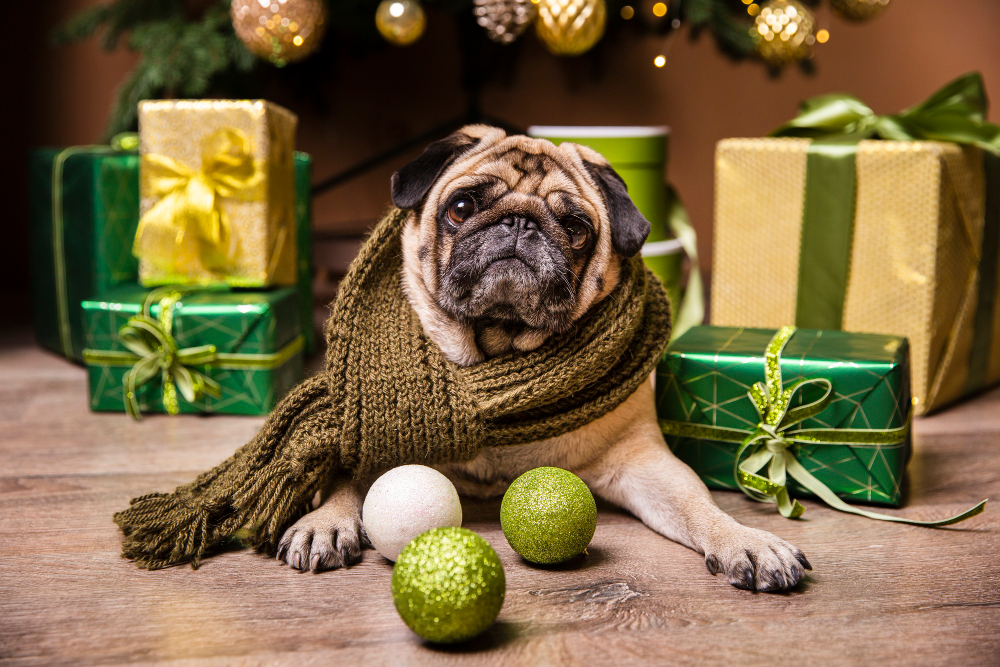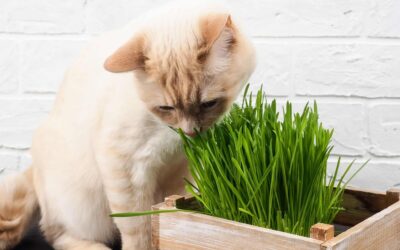How to Keep Your Dog’s Weight In Check During the Holiday

The holiday season is a time of joy, celebration, and indulgence. However, amidst the happiness, we need to remember that our furry companions may be at risk of overfeeding. Excessive weight gain in dogs can cause many health issues. These include joint problems, breathing difficulties, and a higher risk of diabetes and heart disease.
Overfeeding is often a result of well-intentioned but misguided affection. We may be tempted to share our holiday treats with our beloved pets or offer them extra portions as a sign of love. However, this practice can have detrimental effects on their health and well-being. In this article, we will discover how to keep your dog’s weight in check during the holiday season, from developing a balanced diet to treats and occasional indulgences.
Assessing Your Dog’s Current Weight
Before starting a weight management plan, assess your dog’s weight and condition. You can consult your vet or use a body condition scoring system. These methods help check if your dog is at, under, or over its ideal weight.
One simple way to check your dog’s weight at home is to feel their ribs. If you can easily feel the ribs without applying too much pressure, your dog is likely at a healthy weight. If the ribs are hard to feel, your dog may be overweight.
Developing a Balanced Diet Plan
Once you’ve determined your dog’s weight status, the next step is to develop a balanced diet plan. It involves knowing your dog’s nutritional needs and portion control.
A Balanced Diet for Dogs
A balanced dog diet should contain high-quality protein, including lean meats, fish, or plant-based proteins. It should also include complex carbohydrates from whole grains, fruits, and vegetables and healthy fats from sources like fish oil or flaxseed. Most importantly, ensure you are feeding safe foods for them to ingest.
Understanding Your Dog’s Nutritional Needs
Every dog is unique, and its nutritional needs can vary based on factors such as age, breed, activity level, and health. Consult a vet or canine nutritionist to help you determine your dog’s specific dietary needs.
Portion Control
Portion control is crucial for maintaining a healthy weight for your dog. Overfeeding, even with high-quality food, can cause weight gain and health issues. Follow the portion sizes on your dog’s food package, or consult your vet for advice.
Incorporating Healthy Foods
Also, consider adding healthy foods to your dog’s diet. Fresh veggies, like carrots, green beans, and sweet potatoes, have key nutrients and fiber. Lean proteins like chicken or turkey can also be added for variety and satiety.
Treats and Occasional Indulgences
A balanced diet is important, but it’s also fine to treat your pet sometimes. However, choose treats wisely and limit their frequency and portion sizes.
Choose healthy, low-calorie treats made from natural ingredients. Good options are dehydrated fruits or vegetables. You can also make homemade treats with pumpkin, peanut butter, or whole-grain flour.
Remember, treats should account for no more than 10% of your dog’s daily caloric intake. Moderation is key when it comes to treating your furry companion.
Sticking to a Feeding Schedule
A consistent feeding schedule is crucial for maintaining your dog’s healthy weight. Irregular or free-feeding can lead to overeating and weight gain. Stick to a set meal schedule and avoid leaving food out for extended periods.
Maintaining Regular Exercise
Exercise is an important component of a comprehensive weight management plan for dogs. Regular physical activity helps burn calories and promotes overall health and well-being. Engage your furry friend in daily walks, playtime, or other activities that encourage movement and exercise. Try using interactive toys or puzzle feeders to boost mental and physical activity.
Avoiding Hazardous Foods
During the holiday season, watch for hazards that could harm your dog. Many holiday treats and foods can harm dogs, as they may contain toxic ingredients like chocolate, raisins, onions, and alcohol.
Keep these items out of reach. Educate family and guests about the dangers of feeding your dog table scraps or holiday treats. Stick to a safe and balanced diet to ensure your furry friend’s well-being.
Monitoring Your Dog’s Progress
Keeping your dog at a healthy weight is a constant task that requires regular monitoring and adjustments. Track your dog’s weight and body condition. Change their diet or exercise as needed.
Seeking Veterinary Advice
If you’re unsure about your dog’s weight or diet, ask your vet for help. They can provide personalized guidance, address health issues, and create a plan tailored to your dog’s needs.
Pet insurance can support you in managing these health concerns by covering routine check-ups, dietary consultations, and treatments if any weight-related issues arise.




